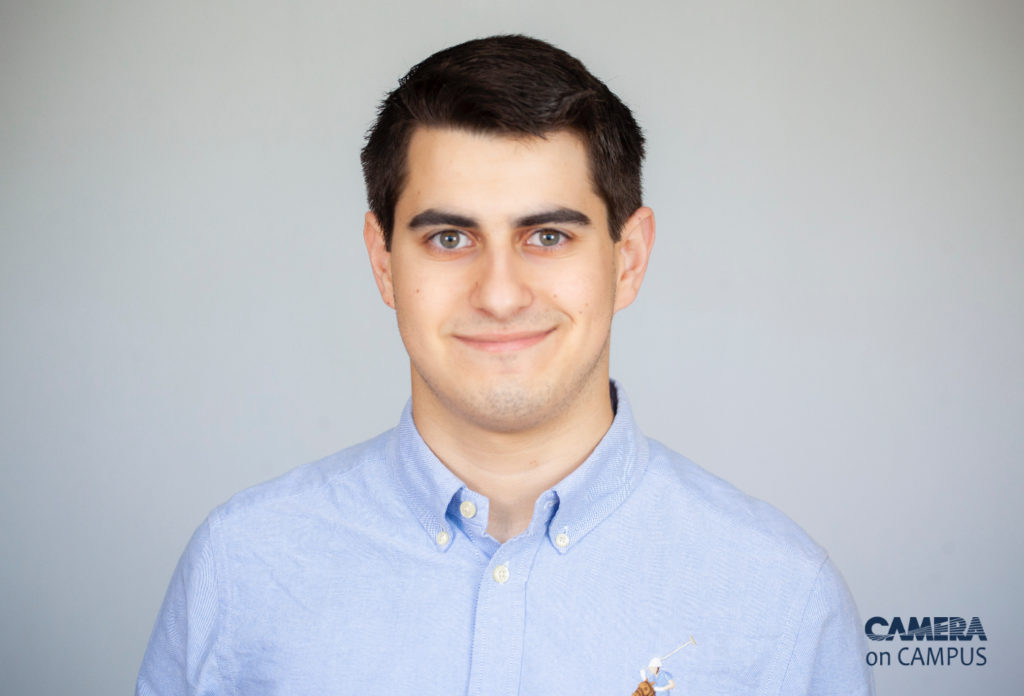Photo: Rob Farrow/geograph.org.uk

King’s College London (KCL) has unfortunately become one of the largest hubs of hostile anti-Zionism in the United Kingdom. It’s hugely popular Palestinian Society has seemingly become the most active student organization of its kind in the capital.
Although I do not believe it is problematic for students to have an opposing opinion about Israel, or even to respectfully protest events, far too frequently these protests turn antagonistic. This climate of animosity toward pro-Israel students in London universities appears to be perpetual, with pro-Israel students being harassed for their views far too often.
I spoke to Esther Walker, a BA History student, and Tamara Berens, a BA War Studies alumna, about their experiences on campus and where they believe changes need to be made.
Tamara is a previous president of the KCL Israel Society and Libertarian Society communications director, and Esther is an incumbent committee member. Both stressed the importance of talking about Israel without fear of backlash.
Tamara said that “the average student does not know much about Israel. What they do know is influenced by biased media coverage. I realized quickly that if you want to have a real conversation and educate others, you can’t be apprehensive, and I started opening up about my emotional ties to the Jewish state.” Esther added that she frequently brings it up. “As I travel there often, my non-Jewish friends are often interested and curious to hear about Israel outside of the context of conflict.”
To fully describe the danger of complacency, Tamara recalled a 2016 event at University College London, where an Israel Society event saw 30 police officers arrive to rescue attendees who had been besieged within a room by a protest organized by a group of London Palestinian Societies. This was not an isolated incident. Earlier that year, a Palestinian Society protest of a KCL Israel Society event saw police evacuate the building after protesters broke through windows, hurled chairs at attendees, and were feared to have been trying to start a fire.
Violent anti-Israel protests still occur at King’s, such as the protest of Israeli speaker Yaron Brook at a Libertarian Society event in March 2018. Furthermore, the non-violent protests remain persistently hostile and disrespectful, with pro-Palestinian students declaring support for fallen terrorists at a protest for an Israel Society event just last year.
Despite this persistent air of animosity, the administrations and student unions of London universities do not act diligently enough. Esther explained how “the [KCL] administration persistently fails to recognize or react to complaints of hate speech [at Palestinian Society events].” Tamara asserted that “the student union was highly politicized against Israel while I was at King’s. They shared Israeli Apartheid Week in their newsletter when they usually never share student society events.”
“Violent anti-Israel protests still occur at King’s, such as the protest of Israeli speaker Yaron Brook at a Libertarian Society event in March 2018.”
Some professors seem to perpetuate anti-Israel bias as well. While most Jewish students have heard stories of professors admonishing a student for defending Israel in class, Esther experienced anti-Israel rhetoric first hand. “While studying the history of the Middle East, only the Israeli left-wing revisionist ideas along with the Arab narrative were being portrayed, misleading students to believe a biased and one-sided version of history,” she explained. Although these micro-aggressions seem rare, it is difficult to accurately measure how often they occur, since most go unreported.
Though there are reasons for optimism, further change is still needed. Tamara noted that “certain things have improved on campus. Jewish students in the UK are growing increasingly aware and informed, organizing more and more pro-Israel events and preempting horrible events like Israeli Apartheid Week in many cases. But the Jewish community in the UK needs to be more supportive of pro-Israel activity on campus and make it a priority.” Esther believes that “further education of Zionist students is needed so that they feel confident standing up against teachers or peers in defense of Israel, as well as continued engagement with students who are not knowledgeable about the conflict to help them form a fair opinion.”
I believe students need to be more active in reporting all incidents that occur. Notifying university administrations about every incident is the best way to show them how widespread aggressive anti-Zionism is. Furthermore, informing other students, the Community Security Trust (CST), and, if necessary, the police is the best way for the community to understand the full extent of the issue and then focus on dissolving anti-Zionist antagonism. Unfortunately, fully dissolving this antipathy for Israel in the UK is far more challenging. It will persist as long as a one-sided view of the conflict, painting Israel as the sole antagonist, is reported and generally accepted within society. I fear that this view will remain fashionable for a long time.
Originally published in The Algemeiner.
Contributed by 2019-2020 King’s College London CAMERA Fellow Elliot Orenstein.

